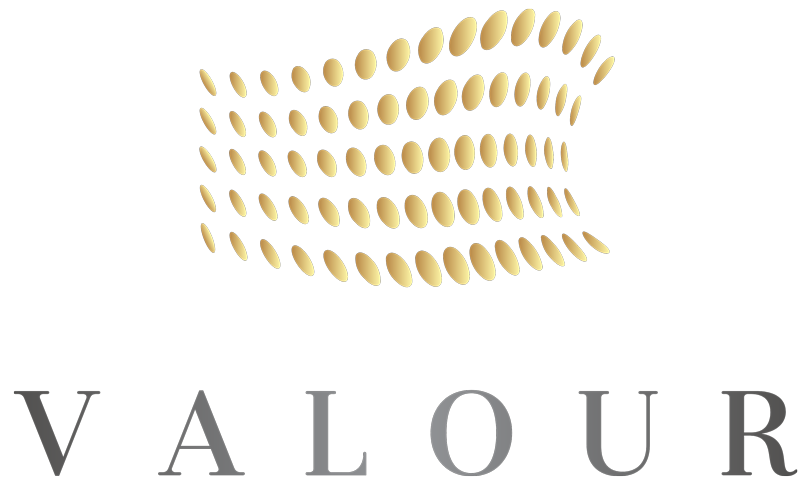Complete Guide to the IB®DP Programme: Curriculum Planning, Admission Pathways, and Essential Skills
INTRODUCTION OF IB®DP :
IBDP®, or International Baccalaureate Diploma Programme, is designed for students aged 16-19 (Grade 11-12) and spans a two-year pre-university curriculum. The programme encompasses six subject areas (mother tongue, foreign language, individuals and societies, sciences, mathematics, and the arts), along with Theory of Knowledge (TOK), Extended Essay (EE), and Creativity, Activity, Service (CAS). This comprehensive structure contributes to the holistic development of students.
ADVANTAGES OF IB®DP :
- Increase University Admission Rates
- College Credit Exemptions (United States)
- Cultivation of Interdisciplinary Understanding and Critical Thinking Skills
- Get to Know about University Education in Advance, including Academic Paper Writing Skills
- Development of Students’ Inquiry, Action, and Reflective Abilities
IB®DP CURRICULUM PLANNING:
IB®DP curriculum consists of six subjects groups and three cores:
*Subjects provided by VALOUR are highlighted in color*
| SIX SUBJECT GROUPS | CURRICULUM |
|---|---|
| 1. Studies in Language and Literature |
|
| 2. Language Acquisition |
|
| 3. Individuals and Societies |
|
| 4. Sciences |
|
| 5. Mathematics |
|
| 6. The Arts |
|
*SL:Standard Level、HL:Higher Level
| THREE CORE ELEMENTS | 課程內容 |
|---|---|
| Theory of Knowledge (TOK) | 完成Completion of the Theory of Knowledge (TOK) presentation (Internal Assessment) and either a 1600-word English essay or a 2000-word Chinese essay (External Assessment), reflecting on the nature of knowledge. |
| Extended Essay (EE) | Conduct independent research and compose a 4000-word English Extended Essay (EE) on a topic related to one of the six DP subjects. If opting for a Chinese-related subject, the essay can be written in Chinese with a maximum word limit of 4800 words. School teachers will provide assistance, and students are required to engage in three reflective discussions with their supervising teachers throughout the process. |
| Creativity, Activity, Service (CAS) | Develop a project proposal that combines personal experiences with one of the Creativity/Activity/Service (CAS). Alternatively, integration with two or more topics is also permissible. |
*The choice of elective subjects depends on the courses offered by the school.
All subjects, except for language courses, are taught in English.
IB®DP COURSE SELECTION AND EXAMINATION:
1. COURSE SELECTION:
Six Subject Groups::Choose one course of study in each subject, with the first through fifth subjects being compulsory (the second subject can substitute for the first). The sixth subject can be selected from the first, second, third, or fourth subjects.
Among the six subjects, it is necessary to opt for 3-4 Higher Level (HL) courses. The HL courses have a duration of 240 hours, while the Standard Level (SL) courses have a duration of 120 hours.
Three Cores:All must be completed, as failure to do so will result in the diploma not being awarded.
2. EXAMINATION:
Examinations are conducted by the International Baccalaureate Organization (IBO) once a year, with a testing period lasting approximately 3-4 weeks. Students in the northern hemisphere take the exams in May of their second year in the program, while those in the southern hemisphere take them in November. After completing the exams in May, students are required to submit their IB scores to universities to confirm if they meet admission standards.
The exams are administered at schools and comprise both External Assessment and Internal Assessment components.
External Assessment
Written exams are the predominant assessment method for most courses. The assessment format varies by subject and is graded by external examiners, ensuring a high level of objectivity and reliability. The following are different types of written exam questions:
- Essays
- Structured Problems
- Short-Response Questions
- Data-Response Questions
- Text-Respose Questions
- Case-Study Questions
- Multiple-Choice Questions (rarely used)
Internal Assessment
Internal Assessment tasks are primarily graded by the teaching staff, with random checks conducted by the IB officials. The various forms of internal assessment include:
- Oral Work in Languages
- Fieldwork in Geography
- Laboratory Work in The Sciences
- Investigations in Mathematics
- Artistic Performances
- Internal Assessment Essays
3. GRADING:
Six Subjects:
Each subject has a maximum score of 7 points, in total 42 points.
Three Core Components:
The Theory of Knowledge (TOK) and Extended Essay (EE) together contribute a maximum of 3 points.
Creativity, Activity, Service (CAS) is not scored but is a mandatory requirement.
Total Score:
The overall maximum score is 45 points. To be awarded the diploma, students must achieve a minimum of 24 points.
4. BILINGUAL DIPLOMA:
To obtain a bilingual diploma, students must successfully complete courses in both Language and Literature in two languages with a score of 3 or above. Alternatively, they may fulfill this requirement by taking Individuals and Societies or Science courses in different languages and achieving a score of 3 or above in those courses.
IB®DP SCHOOLS in TAIWAN:
As of 2023, the following are the schools in Taiwan that offer the IBDP® education:
| SCHOOL NAME | LANGUAGE PROVIDED | |
|---|---|---|
| 北部 | 康橋國際學校秀岡校區Kang Chiao International School (Xiugang Campus) | CHI/ENG/OTHERS |
| 台北美國學校 Taipei American School |
ENG | |
| 台北歐洲學校 Taipei European School |
ENG | |
| 台北奎山中學 Taipei Kuei Shan School |
ENG/CHI | |
| 台北市西松高級中學 Taipei Municipal Xisong High School |
CHI/ENG/OTHERS | |
| 北市立中正高級中學 Taipei Municipal Zhong Zheng Senior High School |
CHI/ENG/OTHERS | |
| 桃園市立大園國際高級中等學校 Taoyuan Municipal Dayuan International Senior High School |
CHI/ENG/OTHERS | |
| 中部 | 雲林維多利亞學院 Victoria Academy |
CHI/ENG/OTHERS |
| 台中明道國際學校 Mingdao High School |
CHI/ENG/OTHERS | |
| 南部 | 高雄美國學校 Kaohsiung American School |
ENG |
| 高雄義大國際學校 I-Shou International School |
CHI/ENG/OTHERS |
WHAT KIND of STUDENTS ARE SUITABLE for IB® PROGRAMME?
1. Effective Time Management:
Successful completion of the two-year IB®DP programme requires efficient time management. With a rigorous curriculum, internal and external assessments for each subject, and additional requirements like Extended Essay (EE) and Theory of Knowledge (TOK), students need to manage their time effectively to meet deadlines and perform well.
2. Interdisciplinary Learning Skills:
The IB program emphasizes multidimensional learning, encouraging students to explore various fields of knowledge and integrate concepts across different subjects. Critical thinking skills, especially in essay writing, are highly valued in the IB, where students are expected to articulate multiple perspectives and summarize their standpoint.
3. Proficient Writing Skills:
Given the substantial writing components in the program, including regular assignments, essays, and internal/external assessments, students need strong writing skills. Both language proficiency and expressive abilities are crucial to navigating the demands of the IB curriculum.
Q&A
Q: The program offers both Standard Level (SL) and Higher Level (HL) courses. How should I allocate my course selections?
A: Higher Level (HL) courses have a duration of 240 hours, while Standard Level (SL) courses have a duration of 120 hours. It is recommended to consider your strengths and weaknesses and assess which key subjects align with your university entrance requirements for choosing HL courses.
Q:Which is more challenging, IB or AP?
A: The IBDP curriculum is more comprehensive and includes a variety of assessments beyond written exams. While this adds complexity, it contributes to a holistic development and application of skills. (Refer to the Advanced Placement(AP)文章 article for more information.)
Q: What IB score is advantageous for college admissions?
A: According to information provided by IBO, students typically score in the range of 29-32. To enhance chances of admission to competitive schools, aiming for a score of 35 or above is recommended.
Q: How should I prepare for the IB®DP?
A: Valour suggests gaining an understanding of the DP curriculum content and assessment methods during the first year. Begin exploring potential majors and researching university information. In the second year, simultaneously prepare for post-secondary plans (e.g., language exams, standardized tests) and grasp the content of exam subjects. Stay closely aligned with the teachers’ pace to manage stress effectively. In the third year, intensify preparations for the final IB exams in May while concurrently handling college applications (e.g., writing essays, preparing for interviews).

